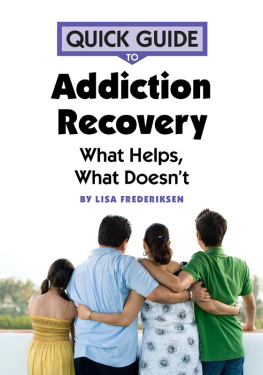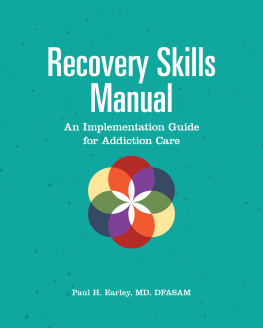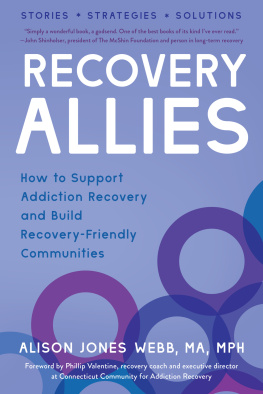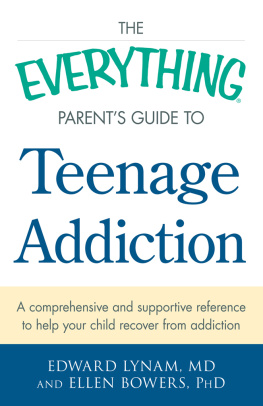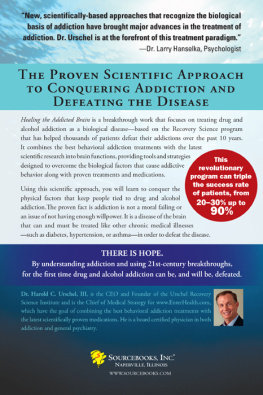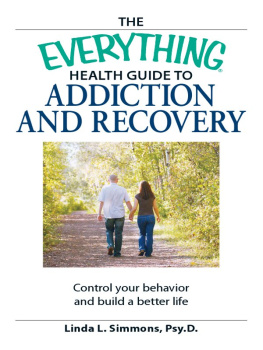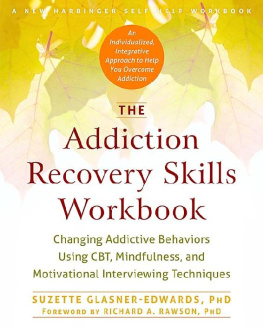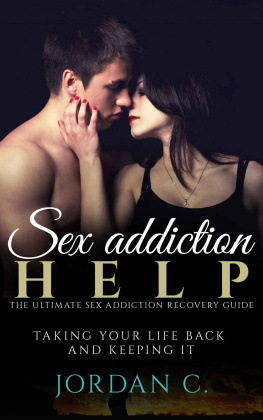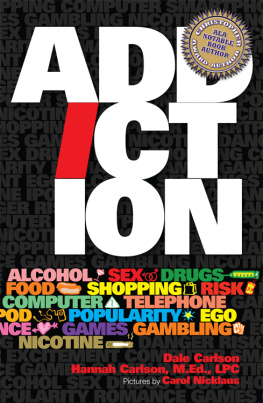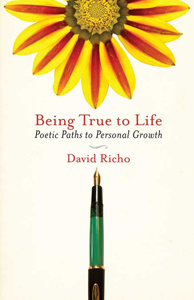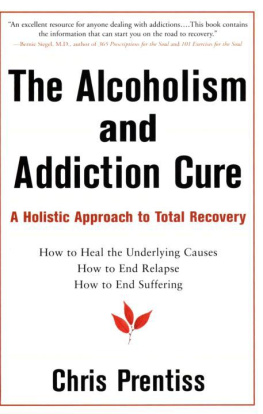
Author of If You Loved Me, Youd Stop! What You Really Need to Know When Your Loved One Drinks Too Much and Loved One In Treatment? Now What!

Copyright 2014 by Lisa Frederiksen
All rights reserved. No part of this Quick Guide may be reproduced; translated; scanned, uploaded or distributed via the Internet; stored in a retrieval system; forwarded, downloaded or transmitted, in any form or by any means, such as: electronic, mechanical, photocopy, microfilm, recording or otherwise, without written permission from the Publisher.
KLJ Publishing
www.kljpublishing.com
ISBN: 978-0-9907900-2-0 (eBook)
Warning and Disclaimer
The purpose of this Quick Guide is to provide information. Every effort has been made to supply accurate information and to accurately cite and credit sources, but no warrant of fitness is implied. The information provided is on an as is basis. The research on which this information is based is advancing rapidly, so facts, resources and links cited may have changed. The author and the publisher shall have neither liability nor responsibility to any person or entity with respect to any injury, loss, errors, inaccuracies, omissions or damage caused or alleged to have been caused, directly or indirectly, by the information contained in this Quick Guide. The author and the publisher reserve the right to correct any errors, inaccuracies or omissions or to update the information contained herein at any time without prior notice.
Printed in the United States of America
Cover design by Jennifer Patankar, http://jenniferpatankar.com
Table of Contents
Introduction to Quick Guides and Lisa Frederiksen
Introduction to Quick Guides and Lisa Frederiksen
Most people have no idea more than 23 million Americans are living in long-term recovery from addiction to alcohol and other drugs. Most people have no idea addiction is a chronic, often relapsing brain disease, which explains, in part, why more than 23 million Americans struggle with the disease of addiction but only 10% get the help they need.
Addiction Recovery What Helps, What Doesnt is the subject of this Quick Guide, which is one in a series of Quick Guides that will cover a range of related topics, including: secondhand drinking, a phenomenon that affects millions, and the brain facts about puberty most teens and parents dont know (brain facts that if understood could have a powerful influence on how we prevent underage substance misuse).
21st Century brain research and science is the link running through all of these Quick Guides. It is this research and science that has unleashed an explosion in discoveries about the human brain, its development, its functioning, what changes it, what can heal it, its ability to regenerate cells, why addiction can cause a person to lie, cheat and steal from those whom they love the most, what improves its health and more. It is this science, simplified, that is attention grabbing and results in people self-electing to change because its generally never been heard before or at least not in the context described in one of these Quick Guides. This science is giving people of all ages, when tailored properly, the ah-ha information theyve needed the why and how to change substance misuse patterns, deal with stress differently (such as that associated with secondhand drinking), hold off on drinking until age 21, treat addiction as the brain disease it is, seek help for mental illness and so much more. This science is that powerful because it shatters the stigma, misinformation and shame that surround these issues.
But it doesnt help if we dont understand it, which is the point of my Quick Guide series. I have been researching, writing, speaking and consulting on a host of brain and addiction-related topics since 2003, a pivotal year for me. It was the year one of my loved ones entered residential treatment for alcoholism and I was plunged into a whole new world. As the author of several books by that time, I was well versed in researching complex subjects and elected to shift my efforts to understanding this new world, starting with trying to figure out why they called it a disease. Having learned to re-eat after 12 years bulimia and anorexia, I had always assumed people who drank too much could learn to re-drink. Thus I had tolerated and coped with what I would soon understand was almost 40 years of various family members and friends alcohol misuse or alcoholism prior to the bottom falling out in 03.
What I have uncovered and since shared in my recent books, If You Loved Me, Youd Stop!, Loved One in Treatment? Now What! and Crossing The Line From Alcohol Use to Abuse to Dependence, presentations, blog, workshops, articles, videos, radio and Internet interviews, is truly revolutionary. Please visit my website, BreakingTheCycles.com , for more information.
Thank you for reading this particular Quick Guide, Addiction Recovery: What Helps, What Doesnt. And please know the research on which this information is based is advancing rapidly, so facts, resources and links cited in this Quick Guide may have changed, depending on when youre reading it.
Chapter 1 Stigma, Misinformation and Shame
Alcoholism a disease? No way! Cancer is a disease. All they have to do is put down the bottle!
If he cared enough about what he was doing to his parents, hed get help. Its that simple.
Shes been through rehab before I dont see how this time will be any different.
Likely youve heard statements like these. Perhaps youve even thought them, yourself.
So much of what we believe about addiction and addiction recovery is bound up in stigma, misinformation and shame. This fuels age-old beliefs that addiction is a choice and failure to stop is a lack of willpower, a moral weakness. Equally inaccurate is the assumption that relapse means treatment failed or the person didnt want recovery badly enough.
But times are changing. There is an active addiction recovery movement now gaining momentum. The word is spreading that more than 23 million Americans are living their lives in recovery from addiction, meaning they no longer use drugs and/or alcohol and have changed their lives through their recovery process. President Obama has nominated Michael Botticelli, a man who openly shares his 25-year recovery from alcoholism, to be the permanent Director of the White House Office of National Drug Control Policy. And the 2014 Presidential Proclamation of September as National Alcohol and Drug Addiction Recovery Month included the following statement:
Research shows addiction is a chronic disease of the brain which can be prevented and treated. However, the stigma associated with this disease and the false belief that addiction represents a personal failing creates fear and shame that discourage people from seeking treatment and prevents them from fully rejoining and contributing to their communities. (President Obama in his Presidential Proclamation National Alcohol and Drug Addiction Recovery Month, 2014. )
So whats happened? How is it possible to define addiction as a disease and explain that addiction recovery is all about healing the brain?
21st Century Brain Research
We all know or have heard about Facebook, Twitter, smartphones and many other communication/social networking technologies as shown in the image below. But some may be surprised to learn these were released in just the past 10 years (assuming youre reading this in 2014). These rapid advances are the result of new technologies, collaboration amongst brilliant minds and funding opportunities like never before.
Next page
